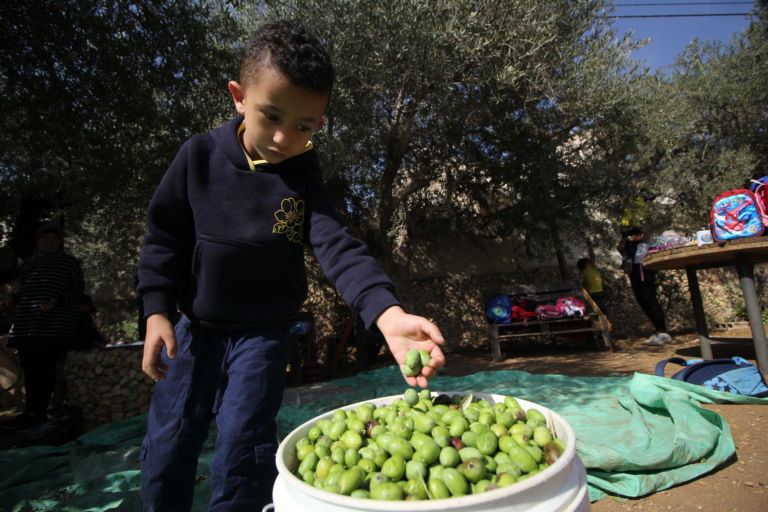
Zahrat Al-Yasmeen Kindergarten
Celebrates the Olive Harvest
The Zahrat Al-Yasmeen Kindergarten was constructed new, and it features crisp carpentry, Aida’s most modern playground, and freshly planted gardens. But there are entities at Lajee treasured not for their newness but for their age, entities that were strong and growing long before Lajee came to this corner of Aida Refugee Camp, maybe even long before Aida Refugee Camp itself was established on this edge of Bethlehem: a small grove of olive trees. So it is that Lajee’s youngest, the students at Zahrat Al-Yasmeen Kindergarten, had a special series of hands-on lessons about one of Palestinians’ star foods, the olive.
Adults in Aida Refugee Camp remember the days when landowners hired people from Aida to pick olives from the trees of a grove northwest of the camp. But in 2005, Palestinians lost access to that space to Israel’s construction of the apartheid separation wall immediately on the edge of the camp.
A few years later, Lajee Center was taking action to recover some of the only remaining open space accessible to the camp by relocating into underused garages. What had been a trash dumping area with some neglected olive trees—area owned by a Palestinian outside the camp and also located close enough to the separation wall and an Israeli military base that it was often dangerous terrain—was gradually recovered into Lajee’s soccer field, gardens, and playground.

